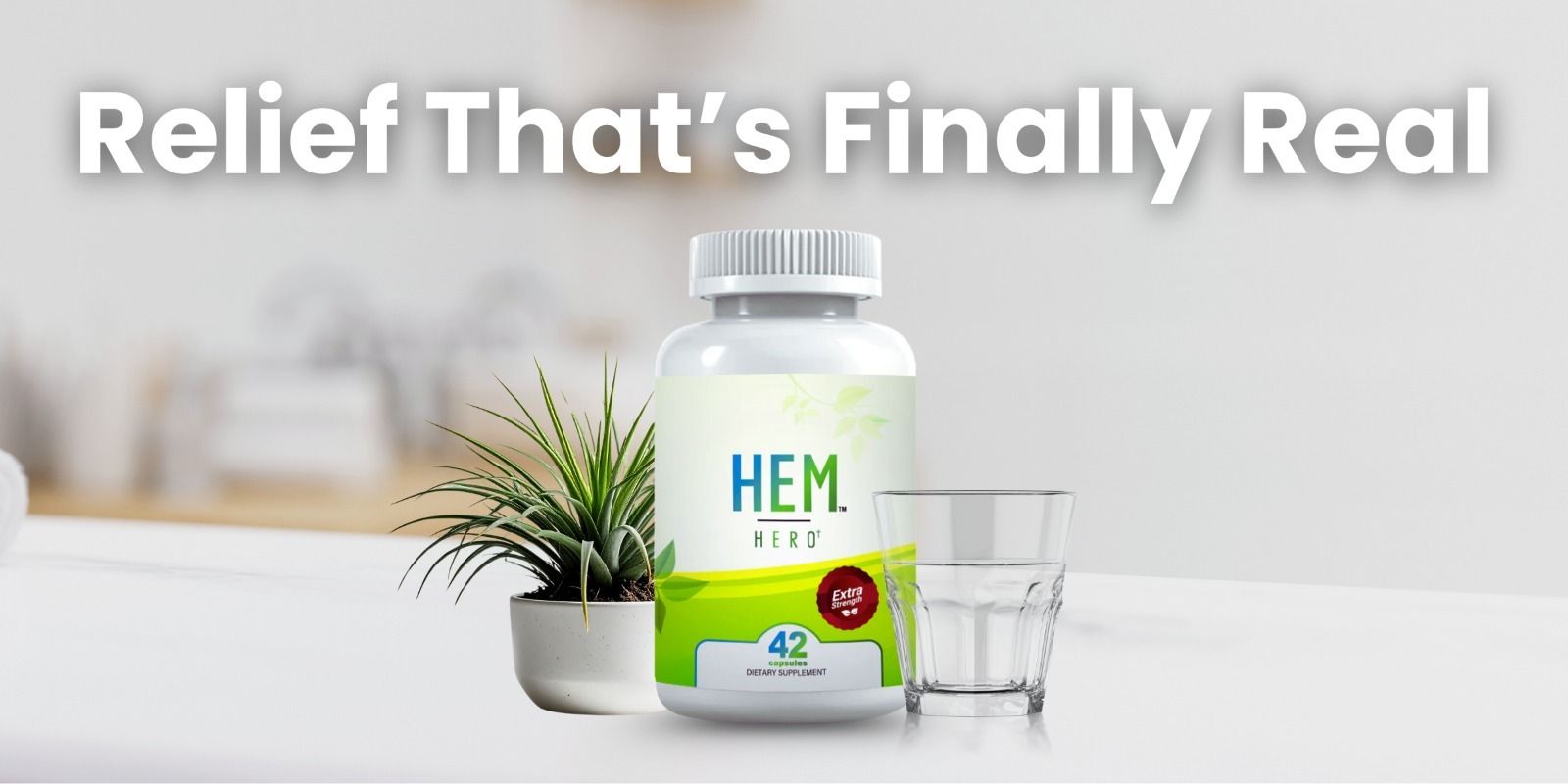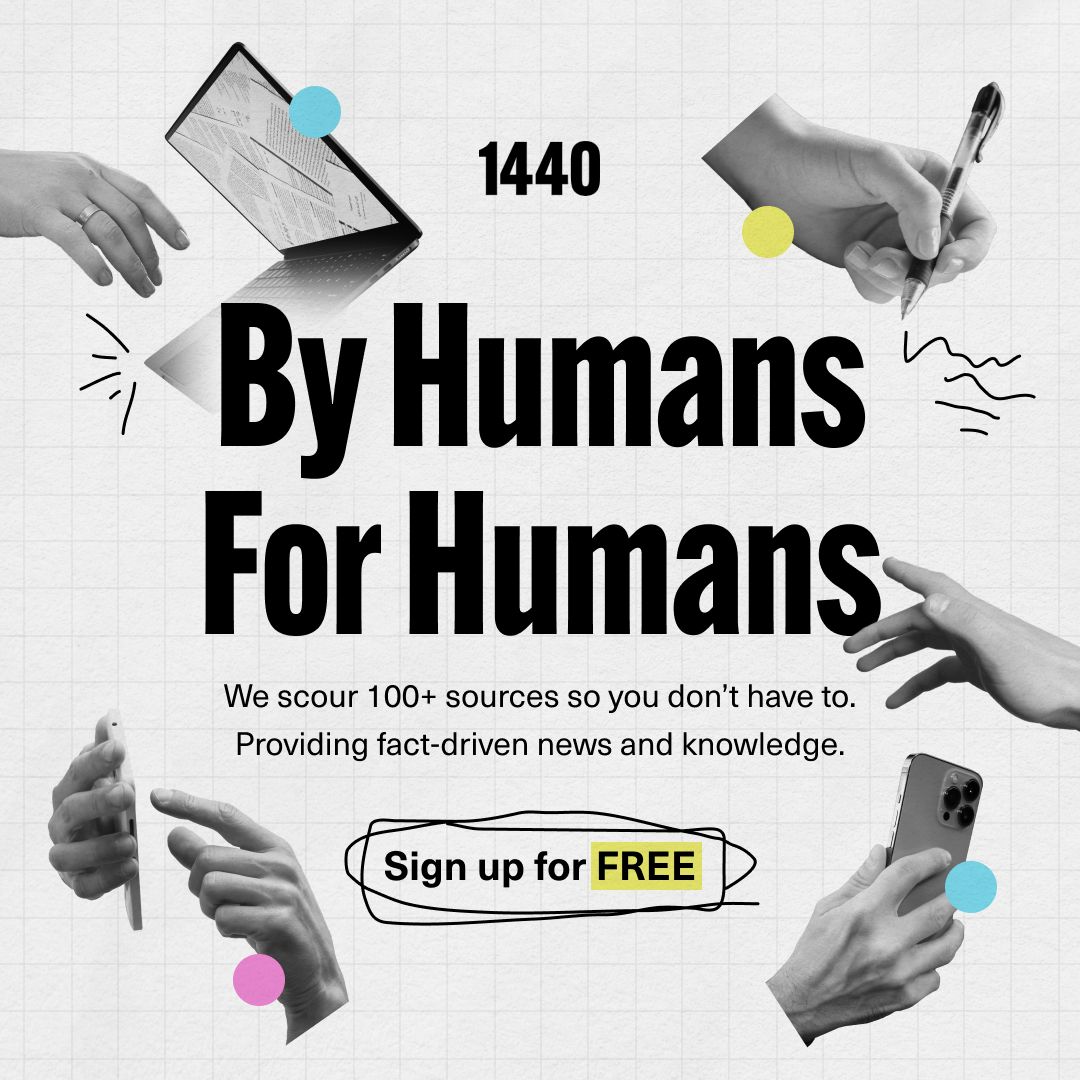
Good morning. In today’s edition:
Study Shows Peanut Allergy Decrease From Early Introduction Guidelines
One Simple Shift for Lasting Weight Loss (Better Than Ozempic)
More Young People Are Getting Early-onset Colorectal Cancer
Popular Hair Loss Drug Linked to Higher Suicide Risk: Compared to Non-users, Finasteride (Proscar/ Propecia) Users Have a Markedly Increased Risk of Depression, Anxiety, and Suicidal Thoughts. Over 30 Years of Observation, 19,320 Suicides Were Expected
…and lots more. Have a great day!

Still Dealing With Hemorrhoids? You’re Not Alone.
You’ve tried the creams. You’ve done the wipes. You’ve even suffered through embarrassing conversations and awkward treatments… and yet, the discomfort keeps coming back.
The itching. The swelling. The pain that hijacks your day — or your sleep.
It’s exhausting. And worse? Most solutions only cover up the symptoms without ever addressing what’s really going on.
Hem Hero® changes that.
This powerful, natural supplement is designed to support healthy veins and help reduce swelling from the inside out. No mess. No shame. Just real, lasting relief.
Thousands have already made the switch to Hem Hero®—and finally found comfort, confidence, and peace of mind.
💊 Works from the inside out
🌿 Supports vein health & reduces flare-ups
🛏️ Discreet, no-mess capsules
⏱️ Helps relieve pain, itching & swelling—fast
Take 1 capsule in the morning, 2 at night. That’s it. No rituals. No interruptions.
Get FREE shipping on orders over $79.99, and save 10% with our flexible subscription. Cancel anytime.
Stop managing your symptoms. Start supporting real relief.
👉 Try Hem Hero® today and take back control.
Fact-based news without bias awaits. Make 1440 your choice today.
Overwhelmed by biased news? Cut through the clutter and get straight facts with your daily 1440 digest. From politics to sports, join millions who start their day informed.
FOOD & NUTRITION
Study Shows Peanut Allergy Decrease From Early Introduction Guidelines

A new study shows that peanut allergies in children have gone down after doctors started recommending early peanut feeding.
In 2015, the American Academy of Pediatrics (AAP) began telling parents to give peanut products to some babies between 4 and 6 months old. In 2017, the advice changed to include most babies. Parents of babies with severe eczema or other allergy risks were told to get testing first. Babies without these issues could be given peanut products based on family choice and culture.
The new study looked at health records from about 40,000 children. It found that peanut allergies dropped by 43% among those who followed the updated feeding advice. The study used doctor records, not allergy tests, to track this change.
This is good news, as peanut allergies used to affect about 2% of U.S. children. In total, food allergies affect around 8% of kids.
However, the study found no drop in egg allergies, which are now the most common food allergy in children. It also showed that eczema, a skin problem linked to allergies, went up during the same time.
Even with those concerns, the results suggest that feeding peanut products early may help prevent peanut allergies.
Doctors hope this information will help more families make safe choices about introducing foods to babies.
Disclaimer: This article is for informational purposes only. It is not medical advice. Always talk to your doctor before making changes to your child’s diet.

Sponsored
The Station
High protein recipes for the station and at home, cooking hacks, and leadership lessons for first responders who want more out of every week.
WEIGHT LOSS
One Simple Shift for Lasting Weight Loss (Better Than Ozempic)

Want an easier way to lose weight and keep it off? Try this: Only eat when you're hungry.
Many people eat when they’re bored, tired, sad, or stressed—not because they need food. This can lead to weight gain, bloating, and low energy. It also makes your body release too much insulin, a hormone that stores fat. Over time, this can cause insulin resistance, belly fat, and health problems like diabetes.
Eating only when you're truly hungry helps your body use stored fat for energy. This gives your organs a break and may improve your mood, focus, and digestion.
Another tip: Choose real food. Processed foods are made to taste good but leave you wanting more. They often contain sugar, starch, and seed oils—and not much protein or nutrients. Without protein and nutrients, your body keeps asking for more food.
Watch out for mindless snacking and emotional eating. Instead, learn what real hunger feels like—a light, empty feeling in your stomach. Don’t wait until you feel weak or dizzy. Just eat when hunger starts, and stop when you're full.
You don’t need to eat three meals a day. Many people feel great with just two. Some even eat one meal a day, depending on their schedule and activity level.
This simple habit builds self-control, reduces cravings, and helps you take charge of your health.
Disclaimer: This article is for informational purposes only and not medical advice. Please talk to your doctor before making changes to your diet or health routine.
HEALTH
More Young People Are Getting Early-onset Colorectal Cancer

More adults under 50 are being diagnosed with colorectal cancer. This includes both colon and rectal cancer. Experts say the number of cases in young people has been rising about 2% each year since the 1990s.
Dr. Kimmie Ng from Harvard says some of these patients are healthy, active, and have no family history of cancer. This has made doctors ask: What is causing this rise?
Some possible reasons include obesity, poor diet, low physical activity, or even unknown chemicals in our environment. But even people who eat well and exercise still get this cancer. That means other causes may be involved too.
Common warning signs include blood in the stool (especially if it’s mixed in), sudden weight loss, changes in bathroom habits, stomach pain, or feeling tired all the time. If you notice any of these, don’t be embarrassed—talk to your doctor.
Screening saves lives. In 2021, the U.S. lowered the screening age from 50 to 45. If you have a family history of colorectal cancer, you may need to get screened even earlier.
Catching this cancer early gives you a better chance at treatment and recovery. Knowing the signs and getting screened could save your life.
Disclaimer: This article is for informational purposes only and does not provide medical advice. Please talk to your doctor about your own health.
Popular Hair Loss Drug Linked to Higher Suicide Risk: Compared to Non-users, Finasteride (Proscar/ Propecia) Users Have a Markedly Increased Risk of Depression, Anxiety, and Suicidal Thoughts. Over 30 Years of Observation, 19,320 Suicides Were Expected

A new study shows that a common hair loss drug called finasteride may raise the risk of serious mental health problems. Finasteride is sold under the names Proscar and Propecia and is often used to treat male pattern baldness.
Researchers looked at 30 years of data. They found that people who took finasteride were more likely to suffer from depression, anxiety, and thoughts of suicide compared to people who didn’t take the drug.
Finasteride works by blocking a hormone that causes hair loss. But it also blocks brain chemicals that help with mood. This may be why some people feel worse while taking it.
The U.S. Food and Drug Administration (FDA) added a warning for depression in 2011 and for suicidal thoughts in 2022. But the new study shows that many cases may still go unreported. Some doctors may not realize the drug is causing these problems. Families may not know their loved one was taking it.
Even after stopping the drug, some people still have symptoms. In a few cases, these side effects led to suicide.
Experts now say finasteride should be more carefully watched. They warn against buying it online without talking to a doctor first.
The study also questions whether the drug really works well long-term.
Disclaimer: This article is for informational purposes only and does not offer medical advice. Always speak to a healthcare provider before starting or stopping any medication.
✢ A Note From Hem Hero
The information in this health newsletter is for educational purposes only and is not a substitute for professional medical advice, diagnosis, or treatment; always consult your healthcare provider with any questions or concerns you may have regarding your health. The publishers are not responsible for any actions taken by the reader based on the information provided.


